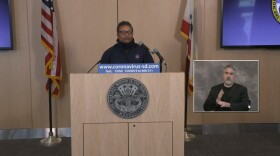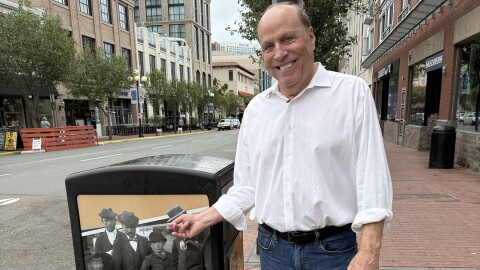
Amal Younis
Assistant News Producer and Gloria Penner FellowAmal Younis served an assistant news producer and was the Gloria Penner Fellow at KPBS. In her role, she helped with KPBS Evening Edition and KPBS Roundtable production and editing. She was also the multimedia editor for The Daily Aztec at San Diego State University and was previously a video editor for One America News Network. Amal is Egyptian, born and raised, and moved to the United States as an international student to attend SDSU. She is currently a journalism senior who started her journalism journey in 2017 and has found a passion for broadcast journalism ever since.
MORE STORIES BY THIS AUTHOR
-
The infamous drug lord Pablo Escobar’s empire included a large family zoo. When he died, he left behind many exotic animals that were eventually relocated, except for the hippos.
MORE STORIES FEATURING WORK BY THIS AUTHOR
-
Supervisor Fletcher said he understood the huge toll stay-at-home orders have taken on the economy and on people's lives, but reminded protesters of the other costs of the pandemic.
-
Supervisor Greg Cox said county leaders would make significant announcements about the relaxation of health orders on Thursday. He didn't share any additional details, but the county's public health officer, Dr. Wilma Wooten, said public health orders would be extended indefinitely — in line with Gov. Gavin Newsom's orders.
-
The state can move on to phase two when testing and tracing rates for the coronavirus are better and when hospitalization rates have stabilized. That will include reopening some nonessential retail stores in the next few weeks. Schools could restart as soon as July or August.
- San Diego County Fair announces next year's theme with nod to joys of reading
- How San Diego Democrats are using Prop 50 to reach new voters
- San Diego Kaiser workers strike for safe staffing, fair pay and benefits
- Gov. Newsom signs a reparations study law but vetoes other racial justice proposals
- A new state law means more housing can be built across San Diego








